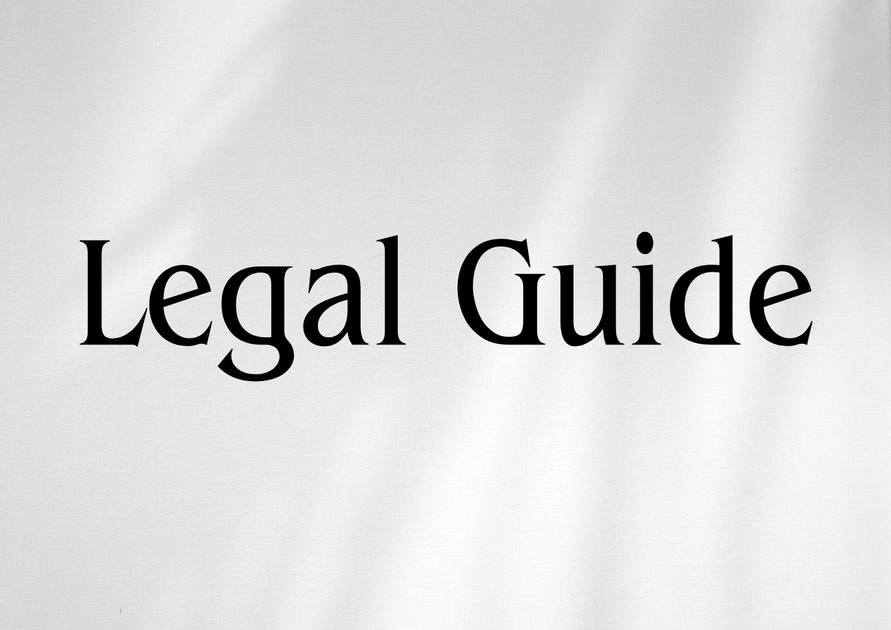Introduction: The Evolving Landscape of Shareholder Legal Responsibilities in the UAE
In the United Arab Emirates, the role of shareholders has always been integral to the governance and success of corporate entities. However, recent legislative updates—most notably Federal Decree-Law No. 32 of 2021 on Commercial Companies and related Cabinet Resolutions—are shaping a new era of shareholder responsibility and accountability. As the UAE solidifies its position as a global commercial hub, robust corporate legal frameworks are essential to uphold transparency, protect minority interests and attract foreign investment. Understanding the scope and nature of shareholder legal responsibilities under UAE law is now critical for business leaders, investors, HR professionals, and legal practitioners seeking to ensure robust compliance and corporate governance in 2025 and beyond.
This advisory examines in detail the current legal regime affecting shareholders in the UAE, particularly in the wake of legislative reforms effective through 2024 and anticipated in 2025. Drawing on official sources such as the UAE Federal Gazette, Ministry of Justice, and the UAE Government Portal, this analysis offers practical consultancy insights, comparative charts, risk assessments, and actionable compliance strategies, tailored to the needs of local and international stakeholders.
Table of Contents
- Overview of the UAE Legal Framework Governing Shareholders
- Core Legal Responsibilities of Shareholders Under UAE Law
- Shareholder Liability: Key Scenarios and Jurisprudence
- Recent Legislative Changes: Comparison of Old and New Provisions
- Minority Shareholder Protections and Remedies
- Practical Implications and Case Studies
- Key Risks, Penalties, and Strategic Compliance Steps
- Conclusion: Forward-Looking Compliance and Governance Insights
Overview of the UAE Legal Framework Governing Shareholders
Key Sources of Law
The legal responsibilities of shareholders in the UAE are primarily governed by:
- Federal Decree-Law No. 32 of 2021 on Commercial Companies (the “Companies Law”)
- Cabinet Resolution No. 58 of 2020 on Ultimate Beneficial Owner Procedures
- Ministerial Decision No. 112 of 2022 on Corporate Governance
- UAE Federal Decree-Law No. 20 of 2018 on Anti-Money Laundering and Combating Financing of Terrorism
These sources establish shareholders’ rights and duties, company management structures, and the consequences of legal or procedural breaches. Additional company-specific responsibilities may arise from each company’s Articles of Association and shareholder agreements.
Types of Companies and Shareholdings
Under UAE law, shareholder responsibilities can differ depending on company type:
- Limited Liability Companies (LLC)
- Public and Private Joint Stock Companies (PJSC/PrJSC)
- Free Zone Entities (subject to both UAE Federal and free zone-specific regulations)
Foreign investors must also be mindful of restrictions and requirements introduced by the Foreign Direct Investment Law and recent Cabinet Resolutions liberalizing foreign ownership in specific sectors. This legal landscape underscores the importance of understanding both general shareholder obligations and those particular to the company’s form and industry.
Core Legal Responsibilities of Shareholders Under UAE Law
1. Financial Contribution and Capital Calls
Shareholders are legally obliged to fulfill their promises to contribute capital per the company’s articles and the Companies Law (Articles 74-86, Federal Decree-Law No. 32/2021). In an LLC, founders must subscribe and pay in full for their shares at incorporation. Failure to pay capital upon demand may result in forfeiture of shares and additional liability for losses suffered by the company.
2. Participation in General Assemblies
Active participation in general meetings—including voting on company matters, approving financial statements, and electing directors—is both a right and a responsibility. The Companies Law now emphasizes the importance of exercising voting rights in good faith (Article 312), prohibiting abusive or fictitious voting patterns.
3. Compliance with Disclosure and UBO Reporting Requirements
Cabinet Resolution No. 58 of 2020 on Ultimate Beneficial Owner (UBO) procedures obliges shareholders (especially those with significant control or 25%+ ownership) to provide accurate disclosures. Misleading or incomplete reporting exposes both shareholders and the company to sanctions.
4. Limitation on Abuse of Majority Power
While majority shareholders enjoy substantial control, misuse of their dominance to prejudice minority rights (for example, through oppressive decisions or conflicts of interest) is prohibited. Article 326 of the Companies Law codifies recourse for minority shareholders in cases of abuse.
5. Adherence to Non-Compete and Confidentiality Clauses
Shareholders (especially founders and directors) may be bound by statutory non-compete devices (Articles 23, 108) and confidentiality requirements, including post-termination confidentiality per the Commercial Companies Law and the company’s internal documentation.
6. Duty to Act in Good Faith and Avoid Misuse of Rights
The Companies Law imposes a general duty to exercise shareholder rights in good faith—prohibiting actions that undermine the company’s interests or those of other shareholders (Art. 138, 312).
7. Obligations Arising Under Anti-Money Laundering Laws
Shareholders, especially those with effective control, have reporting and due diligence responsibilities under Federal Decree-Law No. 20 of 2018 on AML and from Ministerial decision No. 132 of 2022. Knowingly facilitating unlawful activity through the company can result in personal liability.
Visual Suggestion: Compliance Checklist Table—”Core Legal Responsibilities Checklist for UAE Shareholders”
Shareholder Liability: Key Scenarios and Jurisprudence
1. Liability Limited to Capital Contribution—But Exceptions Apply
As a general rule, shareholders’ liability is limited to the value of their shareholding. However, the law carves out exceptions where the “corporate veil” may be pierced, particularly in:
- Fraudulent acts or misrepresentations by shareholders
- Failure to comply with UBO or AML requirements
- Company losses due to acts of gross negligence or intentional misconduct
Judicial decisions in the UAE have confirmed that courts may hold shareholders personally liable for company debts or damages if there is evidence of abuse, fraud, or willful violation of statutory obligations (supported by cases published in the UAE Ministry of Justice portal).
2. Liability for Unlawful Profit Distribution
If dividends or other shareholder distributions are made in violation of Article 230 (i.e., out of capital or in breach of solvency tests), shareholders may be required to return the funds and may face civil and criminal sanctions.
3. Participating in Management
Shareholders who play an active managerial role (especially in LLCs or where acting as directors) may assume enhanced liabilities, akin to those of board members—including personal fines for non-compliance with regulatory filings or actions harming company interests.
Recent Legislative Changes: Comparison of Old and New Provisions
The enactment of Federal Decree-Law No. 32 of 2021 brought significant updates that directly influence shareholder responsibilities. The table below presents a comparative analysis of key changes for 2025 compliance:
| Legal Area | Companies Law (Old) | Companies Law (Current) |
|---|---|---|
| Shareholder Disclosure (UBO) | Minimal statutory disclosure for UBOs. | Enhanced UBO reporting and strict penalties (Cabinet Resolution No. 58/2020). |
| Foreign Shareholding | Restrictive (majority local ownership required in LLCs). | Significant liberalization for foreign investment in many sectors (Federal Decree-Law No. 26/2020, Cabinet Decision No. 16/2020). |
| General Assembly Voting | Majority vote norms, limited recourse for minorities. | Greater protection for minority interests and broader grounds for contesting abusive resolutions (Art. 326). |
| Personal Liability | Limited, except in rare cases. | Wider bases for “piercing the corporate veil” in fraud/negligence scenarios. |
| Online Proceedings | Rare, usually in-person only. | Widespread use of virtual meetings and e-voting (Ministerial Decision No. 112/2022). |
Visual Suggestion: Chart comparing penalty levels for UBO non-compliance and improper profit distribution—”Penalty Comparison under Old vs. New UAE Law”
Minority Shareholder Protections and Remedies
1. Statutory Protections Under the Companies Law
Federal Decree-Law No. 32/2021 now contains expanded minority protections, including:
- The right to challenge General Assembly resolutions deemed contrary to the interests of the company or minority shareholders (Art. 155, 326).
- Access to company records and statutory financial disclosures.
- The right to request a judicial appointment of inspectors to investigate alleged mismanagement.
2. Remedies Available
If minority shareholders allege abusive conduct by the majority (such as the suppression of dividends, prejudicial alterations to articles, or asset striping), UAE courts may:
- Set aside invalid General Assembly resolutions.
- Award compensation or order a buyout of minority interests at fair value.
- Impose direct liability on majority shareholders/directors for social and financial harm.
These are supplemented by contractually agreed protections, such as tag-along and drag-along rights, typically found in sophisticated shareholders’ agreements.
3. Reporting and Escalation Channels
The Ministry of Justice and UAE Securities and Commodities Authority (SCA) have established official channels for reporting shareholder grievances, which are especially relevant for publicly listed companies.
Practical Implications and Case Studies
Case Study 1: Failure to Fulfill UBO Disclosure Obligations
Scenario: A foreign shareholder acquires a 30% interest in a UAE LLC but fails to submit the required UBO declaration under Cabinet Resolution No. 58/2020.
Implications:
- The company becomes exposed to regulatory fines (ranging from AED 50,000 to AED 500,000), and the shareholder may face suspension of voting rights or even forced divestment.
- Operational challenges ensue, as the company may be barred from obtaining government contracts or licenses pending compliance.
- Mitigation: Engage with legal advisors to implement robust onboarding and annual UBO compliance reviews.
Case Study 2: Minority Oppression in Decision-Making
Scenario: Majority shareholders attempt to pass a General Assembly resolution authorizing a related-party transaction at non-market terms, disregarding minority objections.
Legal Analysis:
- Pursuant to Article 326, aggrieved minorities can file court applications to annul prejudicial resolutions and seek damages, provided they act promptly (usually within 30 days).
- Best practices include pre-AGM negotiation and ensuring all related-party transactions are supported by independent valuations.
Case Study 3: Improper Profit Distribution
Scenario: Directors and shareholders approve dividend payments out of capital reserves, contrary to statutory profit and solvency tests.
Consequence: In the event of company insolvency, recipients may be compelled to return unlawful distributions, and personal liability may attach under Articles 230 and 236.
Visual Suggestion: Flow diagram illustrating the escalation process for shareholder disputes under UAE law—”Dispute Resolution Pathway for Shareholders”
Key Risks, Penalties, and Strategic Compliance Steps
Risks of Non-Compliance for Shareholders
- Regulatory Fines—Non-compliance with UBO, AML, or Companies Law provisions can result in substantial penalties (AE 50,000 up to 1,000,000 for severe breaches).
- Personal Liability—Active or willfully neglectful shareholders may have liability “pierced,” exposing personal assets.
- Criminal Sanctions—Serious violations, such as money laundering or fraudulent profit distribution, could invoke imprisonment or travel bans.
- Operational Disruption—Regulatory bars or license suspensions may affect company business, government contracts, and banking relationships.
- Reputational Damage—Public legal action or sanctions can harm a company’s and shareholder’s standing.
Compliance Strategies and Best Practices
- Conduct regular legal audits with the assistance of qualified UAE legal counsel.
- Develop comprehensive compliance policies covering UBO disclosures, director/shareholder duties, and related-party approvals.
- Ensure prompt and accurate reporting of any changes in ownership, UBO status, or governance arrangements.
- Draft robust shareholder agreements reflecting statutory requirements and detailing dispute resolution mechanisms.
- Leverage technology for e-voting, digital record-keeping, and compliance management.
- Offer shareholder training and ongoing education to align conduct with current UAE legal standards.
Visual Suggestion: Compliance Checklist Table—”Step-by-Step Shareholder Compliance Plan for UAE Companies”
Conclusion: Forward-Looking Compliance and Governance Insights
The UAE’s ongoing legislative reforms—culminating in Federal Decree-Law No. 32 of 2021 and a host of subsidiary regulations—mark a turning point in the legal responsibilities of shareholders. Stakeholders must be proactive, not reactive, as the regulatory focus shifts toward transparency, anti-fraud controls, and equal rights for all classes of shareholders.
Moving into the future, the UAE is expected to continue strengthening its investor protection framework, aligning with global best practices—and increasing regulatory scrutiny. Companies are well advised to establish rigorous internal controls, regular legal reviews, and open shareholder communications to stay compliant and competitive.
For shareholders—whether local or foreign, majority or minority—the new era demands heightened diligence, ethical conduct, and a clear understanding of potential liabilities. With the right strategies and professional guidance, businesses can navigate the UAE’s modern corporate legal landscape confidently and contribute to the country’s dynamic and transparent business environment.
For bespoke advice tailored to your circumstances—including review of shareholders’ agreements, UBO compliance, or representation in shareholder disputes—contact our legal advisory team via our website’s dedicated consultation channels.




